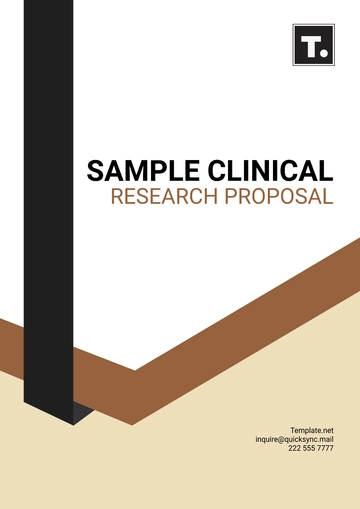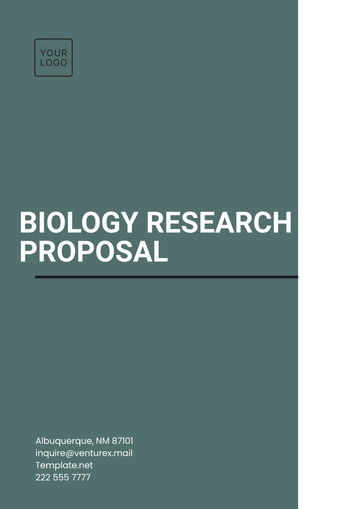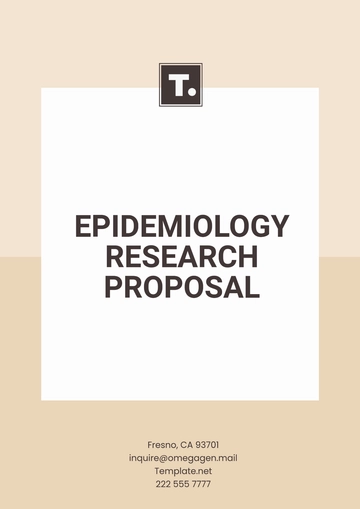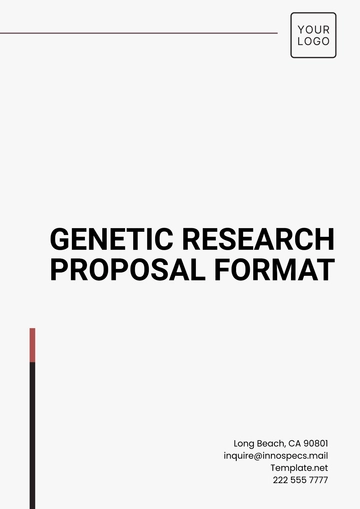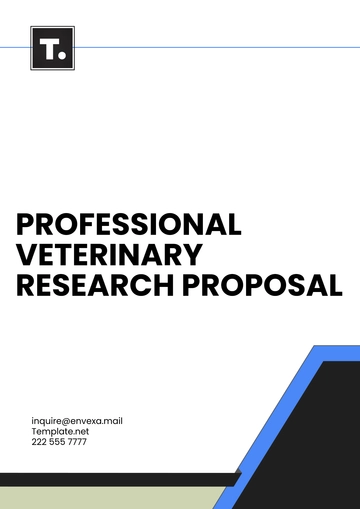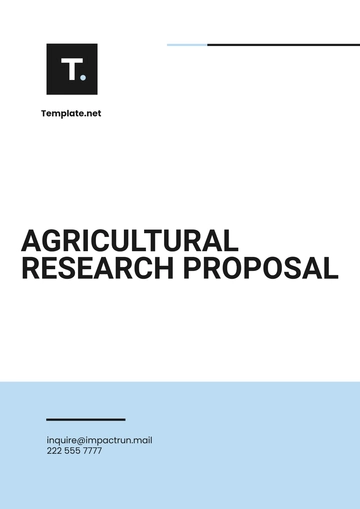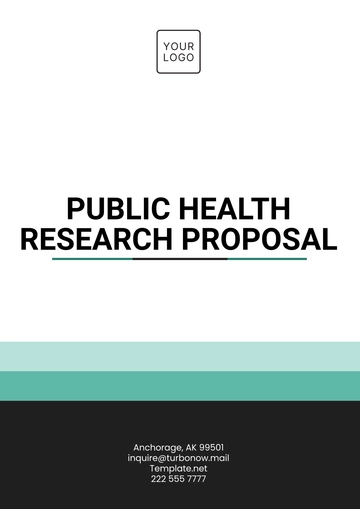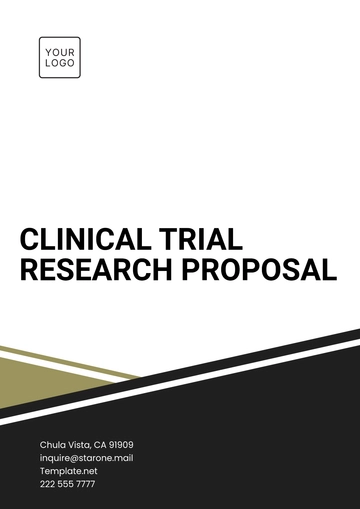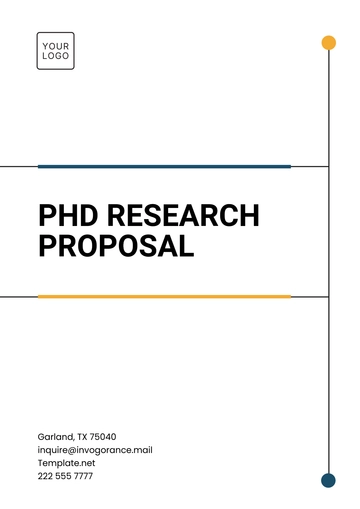Free Professional Veterinary Research Proposal
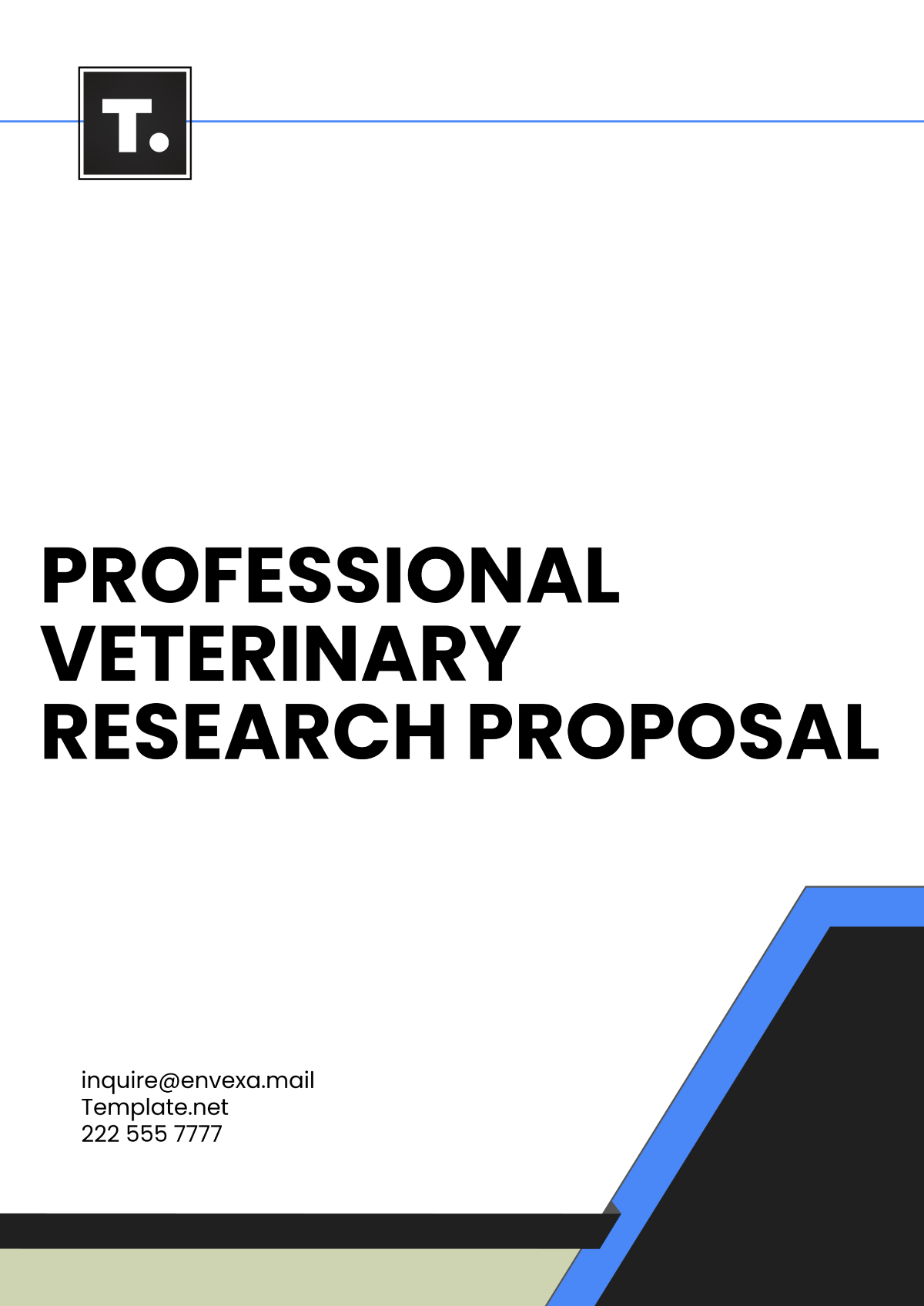
Title: "Investigating the Effects of Probiotic Supplementation on Gut Health in Dogs with Chronic Diarrhea"
Prepared By: [Your Name]
Date: [Date]
I. Abstract
This research proposal aims to investigate the impact of probiotic supplementation on the gut health and recovery of dogs suffering from chronic diarrhea. By comparing clinical outcomes in dogs treated with probiotics versus a control group, this study intends to provide evidence on whether probiotics can improve intestinal health and reduce symptoms of chronic gastrointestinal disorders in canines.
II. Introduction
A. Research Problem
Chronic diarrhea is a common and debilitating condition in dogs, often resulting in malnutrition, weight loss, and reduced quality of life. Despite various treatments, many dogs fail to achieve lasting relief. Probiotics, known for their beneficial effects on gut microbiota, have been proposed as a potential solution to improve gut health and reduce symptoms of chronic diarrhea in dogs.
B. Background Information
The gut microbiome plays a crucial role in the health and functioning of the digestive system. Studies in humans and other animals have shown that probiotics can restore microbial balance in the gut, enhancing digestion and immunity. However, there is limited research on the specific effects of probiotics in dogs with chronic diarrhea.
C. Significance of the Study
This research is significant because it could offer an alternative or complementary treatment for chronic diarrhea in dogs. By providing evidence-based results, it could improve clinical practices in veterinary care and offer a cost-effective, non-invasive treatment option for pet owners.
III. Literature Review
Previous studies on probiotics in veterinary medicine have primarily focused on gastrointestinal diseases in livestock, with limited research on companion animals, especially dogs. Studies in humans suggest that probiotics can effectively treat diarrhea caused by antibiotics, infections, or inflammatory conditions. A study by X et al. (2050) found that probiotic supplementation in dogs with acute gastrointestinal distress led to faster recovery times and reduced symptoms. However, there is a gap in research specifically addressing chronic diarrhea and the long-term effects of probiotics in canines.
IV. Objectives
To assess the clinical efficacy of probiotics in reducing the symptoms of chronic diarrhea in dogs.
To examine the impact of probiotics on gut microbiota composition in affected dogs.
To evaluate any potential side effects or risks associated with probiotic supplementation in dogs.
V. Methodology
A. Research Design
This will be a randomized controlled trial (RCT) with two groups: one group will receive probiotic supplements, while the other will receive a placebo. Both groups will consist of 30 dogs diagnosed with chronic diarrhea.
B. Participants
The study will involve adult dogs diagnosed with chronic diarrhea, aged 1-8 years. Only dogs that have not received probiotics or antibiotics within the past two weeks will be eligible for the study.
C. Data Collection
Data will be collected through regular veterinary visits, where stool samples will be analyzed for microbial composition and overall health will be monitored through body weight, hydration status, and general well-being. Owners will also complete daily diaries to track symptoms.
D. Data Analysis
The primary outcome will be a reduction in the frequency and severity of diarrhea, measured using a standardized scoring system. Secondary outcomes will include changes in gut microbiota composition, measured through DNA sequencing, and any observed side effects.
VI. Timeline
Month | Activities |
|---|---|
Month 1-2 | Recruitment and initial health screening of participants |
Month 3-4 | Probiotic or placebo administration, with weekly follow-ups and data collection |
Month 5 | Final data collection and analysis of clinical outcomes and microbiota composition |
Month 6 | Data analysis and report writing |
VII. Budget
Expense Category | Amount |
|---|---|
Probiotics (30 dogs) | $1,500 |
Laboratory analysis of stool samples | $3,000 |
Veterinary consultation and monitoring | $2,000 |
Miscellaneous (transportation, materials) | $500 |
Total Budget | $7,000 |
VIII. Ethical Considerations
This study will adhere to ethical guidelines for animal research, ensuring that all dogs are treated with the utmost care and consideration. Informed consent will be obtained from all owners, and dogs will be monitored closely for any adverse reactions. The study will undergo approval by an institutional animal care and use committee (IACUC).
IX. Expected Outcomes
The study expects that probiotic supplementation will lead to a significant reduction in the frequency and severity of diarrhea in dogs. Additionally, it is anticipated that changes in the gut microbiota will correspond with improved clinical outcomes. This could establish probiotics as an effective treatment for chronic diarrhea in dogs, providing a non-invasive, long-term solution.
X. References
X, Y., et al. (2050). "The Effects of Probiotics on Gastrointestinal Disorders in Dogs." Veterinary Medicine Journal, 58(2), 120-128.
Z, A., et al. (2050). "Probiotic Treatment of Diarrhea in Dogs: A Review." Journal of Veterinary Internal Medicine, 33(5), 1247-1255.
- 100% Customizable, free editor
- Access 1 Million+ Templates, photo’s & graphics
- Download or share as a template
- Click and replace photos, graphics, text, backgrounds
- Resize, crop, AI write & more
- Access advanced editor
Enhance your veterinary research submissions with our Professional Veterinary Research Proposal Template from Template.net. This editable and customizable template helps you structure your research plan efficiently, covering key aspects of veterinary studies. Easily personalize it using our Ai Editor Tool, ensuring your proposal is comprehensive, detailed, and professionally formatted to impress reviewers.
You may also like
- Business Proposal
- Research Proposal
- Proposal Request
- Project Proposal
- Grant Proposal
- Photography Proposal
- Job Proposal
- Budget Proposal
- Marketing Proposal
- Branding Proposal
- Advertising Proposal
- Sales Proposal
- Startup Proposal
- Event Proposal
- Creative Proposal
- Restaurant Proposal
- Blank Proposal
- One Page Proposal
- Proposal Report
- IT Proposal
- Non Profit Proposal
- Training Proposal
- Construction Proposal
- School Proposal
- Cleaning Proposal
- Contract Proposal
- HR Proposal
- Travel Agency Proposal
- Small Business Proposal
- Investment Proposal
- Bid Proposal
- Retail Business Proposal
- Sponsorship Proposal
- Academic Proposal
- Partnership Proposal
- Work Proposal
- Agency Proposal
- University Proposal
- Accounting Proposal
- Real Estate Proposal
- Hotel Proposal
- Product Proposal
- Advertising Agency Proposal
- Development Proposal
- Loan Proposal
- Website Proposal
- Nursing Home Proposal
- Financial Proposal
- Salon Proposal
- Freelancer Proposal
- Funding Proposal
- Work from Home Proposal
- Company Proposal
- Consulting Proposal
- Educational Proposal
- Construction Bid Proposal
- Interior Design Proposal
- New Product Proposal
- Sports Proposal
- Corporate Proposal
- Food Proposal
- Property Proposal
- Maintenance Proposal
- Purchase Proposal
- Rental Proposal
- Recruitment Proposal
- Social Media Proposal
- Travel Proposal
- Trip Proposal
- Software Proposal
- Conference Proposal
- Graphic Design Proposal
- Law Firm Proposal
- Medical Proposal
- Music Proposal
- Pricing Proposal
- SEO Proposal
- Strategy Proposal
- Technical Proposal
- Coaching Proposal
- Ecommerce Proposal
- Fundraising Proposal
- Landscaping Proposal
- Charity Proposal
- Contractor Proposal
- Exhibition Proposal
- Art Proposal
- Mobile Proposal
- Equipment Proposal
- Student Proposal
- Engineering Proposal
- Business Proposal
